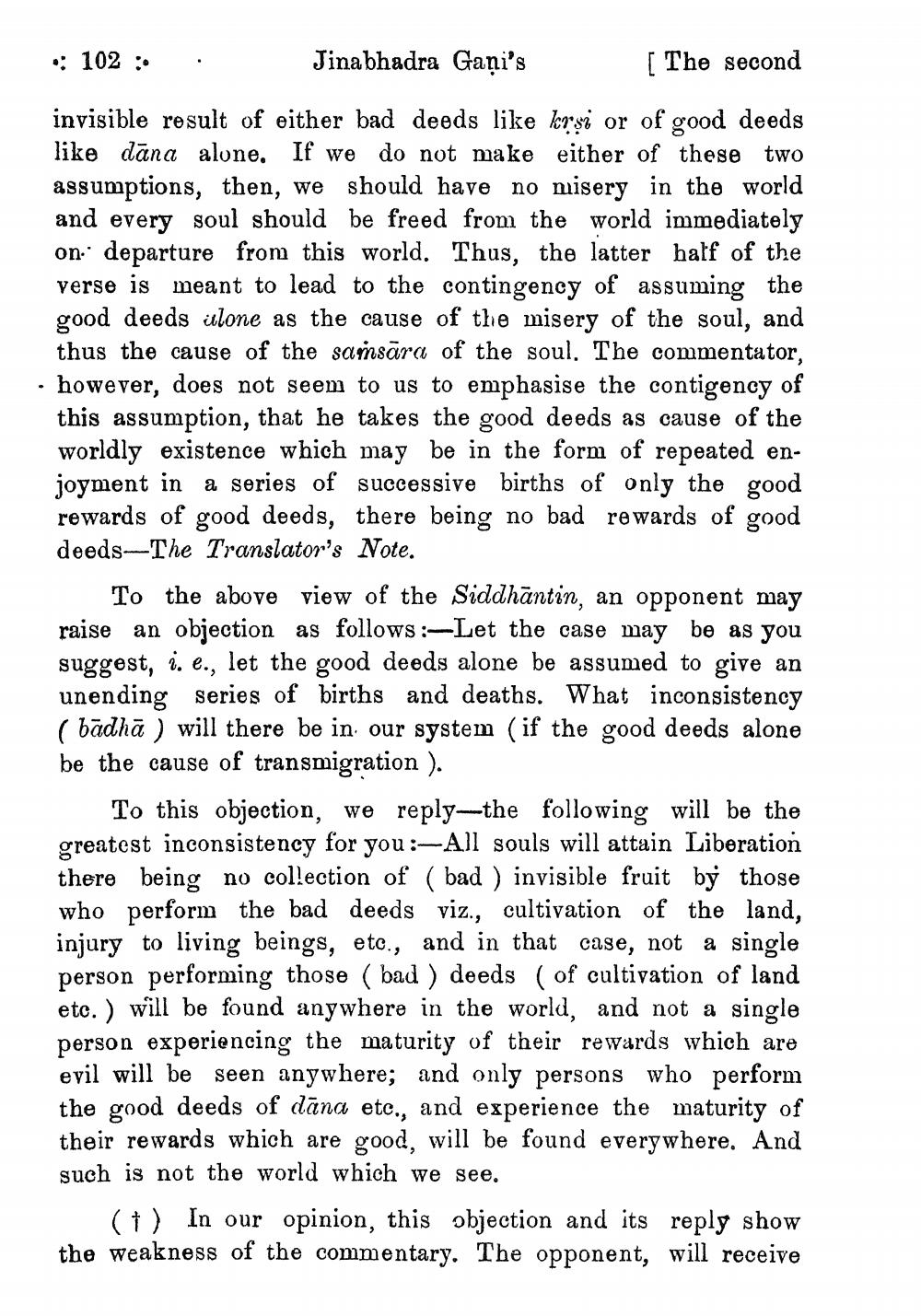________________
•: 102 :
:
Jinabhadra Gaņi's
[The second
invisible result of either bad deeds like krsz or of good deeds liko dana alone. If we do not make either of these two assumptions, then, we should have no nisery in the world and every soul should be freed from the world immediately on departure from this world. Thus, the latter half of the verse is meant to lead to the contingency of assuming the good deeds ilone as the cause of the misery of the soul, and thus the cause of the samsāra of the soul. The commentator, · however, does not seem to us to emphasise the contigency of this assumption, that he takes the good deeds as cause of the worldly existence which may be in the form of repeated enjoyment in a series of successive births of only the good rewards of good deeds, there being no bad rewards of good deeds-The Translator's Note
To the above view of the Siddhāntin, an opponent may raise an objection as follows:-Let the case may be as you suggest, i. e., let the good deeds alone be assumed to give an unending series of births and deaths. What inconsistency ( badha ) will there be in our system (if the good deeds alone be the cause of transmigration ).
To this objection, we reply-the following will be the greatest inconsistency for you :-All souls will attain Liberation there being no collection of ( bad ) invisible fruit by those who perform the bad deeds viz., cultivation of the land, injury to living beings, etc., and in that case, not a single person performing those ( bad ) deeds (of cultivation of land etc.) will be found anywhere in the world, and not a single person experiencing the maturity of their rewards which are evil will be seen anywhere; and only persons who perform the good deeds of dana etc., and experience the maturity of their rewards which are good, will be found everywhere. And such is not the world which we see.
( In our opinion, this objection and its reply show the weakness of the commentary. The opponent, will receive




